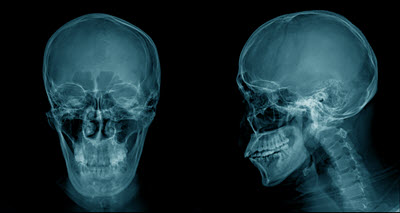Brain Injury
Tiffany Haddish’s Story Tells of the Challenges TBI Victims Face
In a recent interview with the New York Times, comedienne Tiffany Haddish revealed that her mother suffered a severe traumatic brain injury years ago following a car crash. The mother developed schizophrenia, a severe personality disorder, as a result of the crash. The results were so severe that Haddish and her siblings were placed in…
Read MoreBlind Woman Can See Moving Objects
A fascinating story in Scientific American profiled a woman who was blinded by a stroke, but developed an unusual condition. She can see moving objects such as “steam rising from a coffee cup” but she can’t the cup itself. The condition, called “Riddoch phenomenon,” is very rare. Just a few people are known to have…
Read MoreIs there a Link Between Traumatic Brain Injury and Alzheimer’s Disease?
For 20 years or more, research has linked traumatic brain injury (TBI) with an increased risk of developing Alzheimer’s disease or any type of dementia in the years following a head injury. A group of researchers from the University of Arizona in the United States and College of Basic Medicine Jiamusi University in China undertook…
Read MoreLoss of Taste and Smell are Common Brain Injury Complications
According to BrainLine.org, losing the ability to taste and smell affects up to one in four traumatic brain injury victims. A University of Montreal study confirmed that the loss of these two senses can follow a TBI. The study of 49 people showed that slightly over half the patients with a TBI lost their sense…
Read MoreDoes a Normal MRI Scan Mean No Brain Injury?
Make no mistake about it: very severe brain injuries show up on magnetic resonance imaging scans, called MRIs. They can show brain bleeding; they can show brain bruising. But that doesn’t mean that every traumatic brain injury is gonna show up on an MRI scan. MRIs find stuff that’s macroscopic – that’s seen by the…
Read MoreDealing with Depression After a Traumatic Brain Injury
One of the positive benefits of all the attention on concussion and traumatic brain injury in NFL players, is that the public is becoming increasingly aware of the devastating and long-term effects TBI can inflict. Depression is one of the effects of a traumatic brain injury. Depression can show up weeks, months or even a…
Read MoreFinding Hope for Veterans with TBI and PTSD Given an “Other-Than-Honorable” Discharge
The Department of Veterans’ Affairs’ National Center for PTSD reports that the conflicts in Iraq and Afghanistan resulted in increasing numbers of Veterans with traumatic brain injuries. The U.S. Department of Defense estimates that 22% of all combat casualties from these conflicts were from brain injuries as compared to about 12% of Vietnam-related combat casualties.…
Read MoreTraumatic Brain Injury and the Link to PTSD
More and more research has been done in the past few years regarding the link between a traumatic brain injury (TBI) and post-traumatic stress disorder (PTSD). According to a study from UCLA published in the journal Biological Psychiatry, people who suffer a TBI are more likely to develop PTSD or a similar anxiety disorder. This…
Read MoreAre Pediatric Concussions Going Undiagnosed?
The Centers for Disease Control and Prevention reports that roughly half a million children go to the emergency room with a concussion each year—but is that number accurate? Since most traumatic brain injuries (TBIs), including concussions, are diagnosed in a primary care physician’s office, rather than the ER, the official number of children impacted by…
Read MoreThis is What Can Happen to Your Brain in a Car Accident When You Hit Your Head
Motor vehicle accidents are one of the most common causes of traumatic brain injury in the United States. The U.S. Centers for Disease Control and Prevention (CDC) reports that TBI is a major cause of death and disability in the United States, and TBI’s contribute to about 30% of all injury deaths. The long-term effects…
Read More
